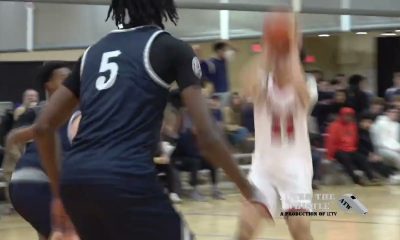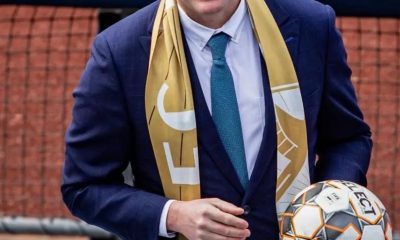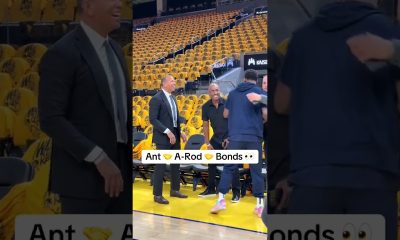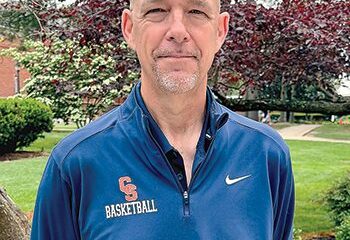Boston University sophomore Aiden Celebrini has no regrets over the decision he reached at 16 to maintain his college eligibility by skipping a chance to play for the Western Hockey League’s Saskatoon Blades.
And it makes no difference that college hockey wasn’t on his radar growing up in North Vancouver and regularly attending WHL games with his younger brother Macklin, the NHL’s draft’s No. 1 pick last summer.
“We didn’t know much about college hockey,” Celebrini said during the Frozen Four championship in St. Louis. “Going to Vancouver Giants games, that was always kind of our dream to play in the WHL and then eventually play in the NHL.”
It’s a dream Macklin has already achieved in completing his rookie season with the San Jose Sharks and after one year at BU. Aiden could well follow after being drafted by his hometown Canucks in 2023.
Last fall, the NCAA made a landmark eligibility decision to allow Canadian Hockey League players to compete at the college level. The ruling frees today’s players from the either-or choice the Celebrinis faced to either join the CHL team that drafted them or preserve their college eligibility as they did by playing at the Canadian Junior A or USHL levels — Aiden in Alberta and Macklin in Chicago.
“I’m kind of jealous,” Aiden Celebrini said. “I think it’s awesome that guys can experience both now because I think the WHL is a top league, and obviously the NCAA is also. It’s great to have that kind of pipeline now.”
While players will benefit most, the NCAA ruling has the potential to dramatically tilt North America’s junior hockey developmental landscape toward U.S. colleges in a fundamental altering of how prospects reach the NHL.
Paths to the NHL
The route for many has traditionally run through the CHL’s three leagues, the WHL, OHL and QMJHL.
The CHL remains the clear leader in having 839 players drafted from 2015-24, with the NCAA’s 74 a distant seventh. And yet, of those 74 college players, 63 were chosen in the first round, including two Canadians selected first overall (Celebrini and Michigan’s Owen Power in 2021).
College hockey players now make up about a third of NHL rosters, up from 20% in 2000, with Hockey East commissioner Steve Metcalf envisioning that number growing.
“I don’t think it’s that complicated. There’ll be an increasing number of NHLers that come from college,” Metcalf told The Associated Press at the Frozen Four. “(The CHL and USHL) will feed players up into college hockey. And college hockey will feed the players up to the NHL.”
College money
College sports awaits the final approval of a $2.8 billion antitrust settlement that will change the economics across the NCAA and its hundreds of member schools by allowing revenue sharing. That, and the availability of NIL endorsement money, will provide college programs beyond football and basketball different resources to attract recruits.
A hot topic of discussion at the Frozen Four was the potential of hockey programs making six-figures offer to lure top-end CHL players, such as Medicine Hat forward Gavin McKenna, already projected to be No. 1 pick in the 2026 NHL draft.
“The better talent we can get into college hockey, the better it is for college hockey. So access to a new talent pool is a good thing,” said Western Michigan athletic director Dan Bartholomae, whose Broncos won their first title.
“We’re going to compete in that space,” he added of an athletic department in the midst of building a $500 million new downtown arena. “We could grow a little bit in the sport of hockey, and we’re planning to.”
WMU fans celebrate first-ever NCAA Ice Hockey National Championship win
A resized talent pool?
Questions include how much college hockey can expand, given the eight-figure price tag to launch a Division I program, and how the CHL and USHL adapt. CHL President Dan MacKenzie doesn’t expect his three leagues to take a back seat to anyone.
“The changes have been monumental, obviously. We’ve all been trying to get an handle on what’s going to happen,” he said. “What we’ve seen in those five months is the CHL basically get stronger.”
For proof, MacKenzie noted that 205 CHL alumni, representing more than 50% of NHL rosters, are currently competing in the playoffs. He also pointed to NHL Central Scouting having 170 CHL players included in their pre-draft rankings, the most ever.
Expansion is on the horizon, with the WHL preparing to launch two teams in British Columbia, which would increase the CHL’s total to 60.
“Every player is going to make a different decision,” MacKenzie said. “All we can do is try to run a whole bunch of great programs across our teams and leagues and let the chips fall, because we feel pretty confident that we’re going to be the destination for that player.”
The challenge for the USA Hockey-backed USHL is somewhat different in staying competitive while maintaining its objectives of growing the game across American and developing U.S.-born talent.
The initial fallout from the NCAA ruling led to two teams, Youngstown and Muskegon, being rejected in their bid to leave the USHL and join the OHL. All 16 teams have since committed to remaining in the USHL next year.
Commissioner Glenn Hefferan dismissed the potential of a lawsuit by noting the USHL has anti-trust protections. He instead foresees a future in which the USHL and CHL forge closer bonds, with the potential of inter-league preseason games on the horizon.
Canada vs. USA
A bigger concern is the NCAA’s change in eligibility rules leading to Canadians potentially displacing Americans on college rosters. Hefferan and USA Hockey executive director Pat Kelleher both said they’d like to see the U.S. Congress cap the number of international players on college teams.
Hockey East’s Metcalf dismissed that proposal outright.
“My immediate reaction is that’s the opposite direction we’re going in,” Metcalf said. “College hockey is interested in getting the best players they can from where ever they’re from.”
In the meantime, the NHL is monitoring developments and might eventually need to weigh in, with input from the NHL Players’ Association.
Currently, NHL teams retain the draft rights to players for 30 days after they leave college. By comparison, teams hold CHL players’ right for two seasons after being drafted.
One benefit NHL teams have in drafting college players is, once signed those players can be sent directly to the minors. CHL players must be returned to their CHL teams until their eligibility expires.
“The NCAA made whatever decision, and we’re all going to have to adjust,” NHL Commissioner Gary Bettman said. “We’re going to have to talk to the union and understand how we think it works based on the current rule and what maybe we need to modify to be reflective of the way we think things would flow best.”
___
AP Hockey Writer Stephen Whyno contributed.
___
AP NHL: https://apnews.com/hub/nhl
Follow FOX 17: Facebook – X (formerly Twitter) – Instagram – YouTube

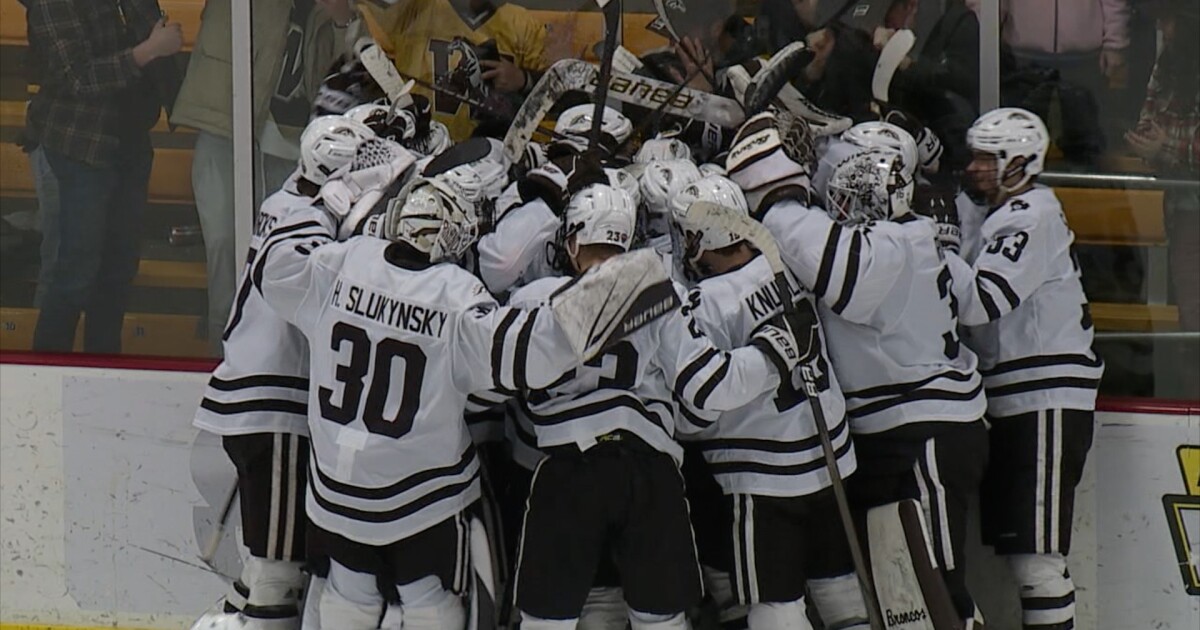


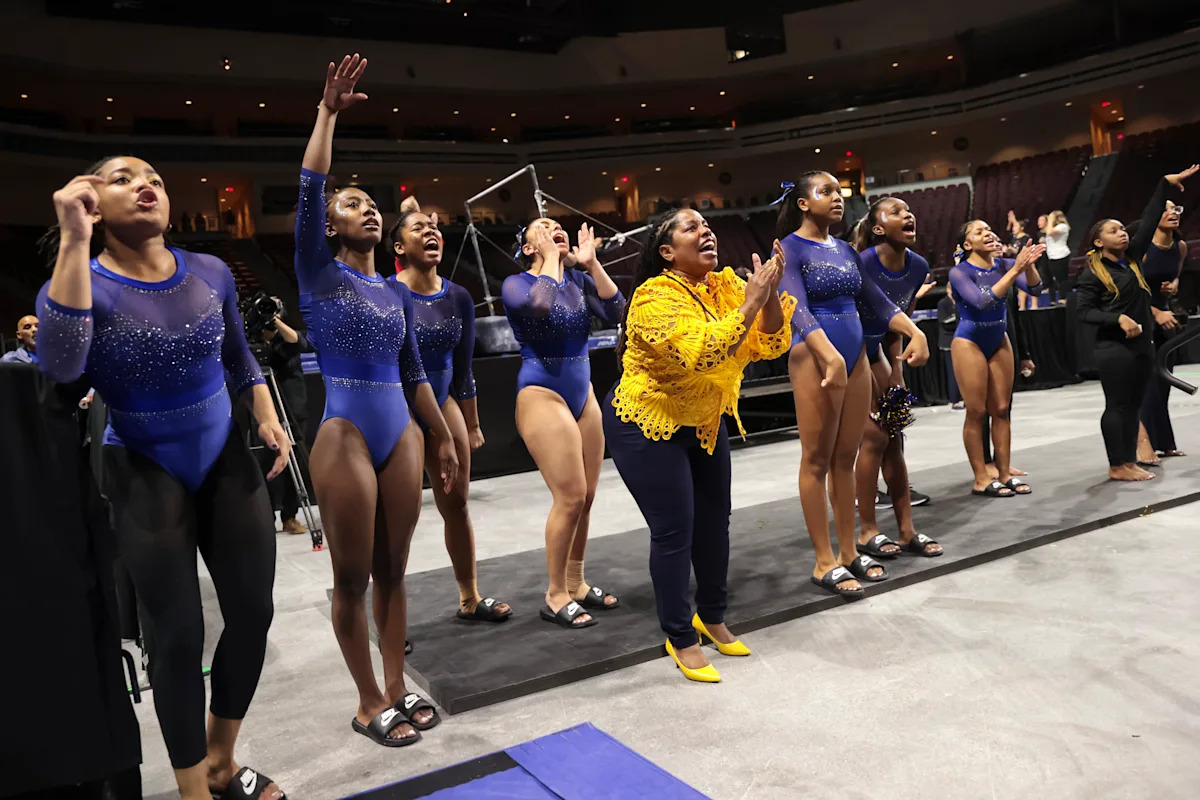
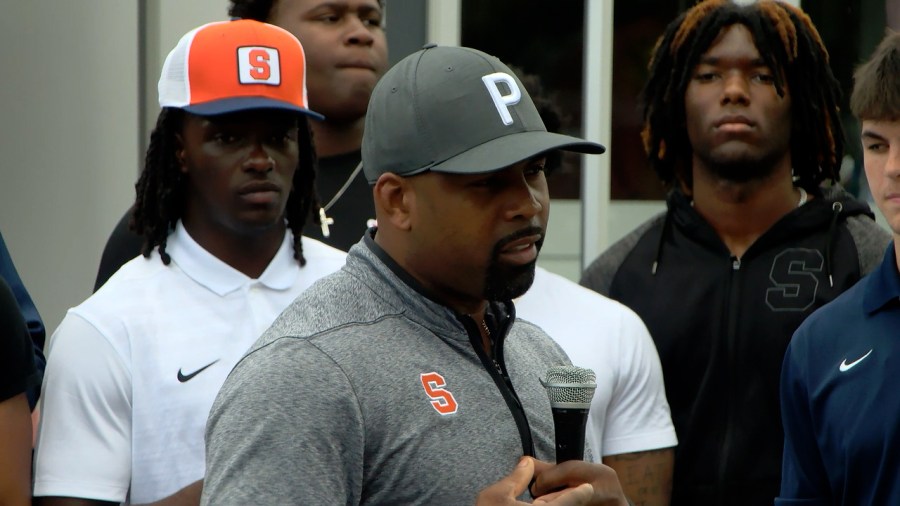

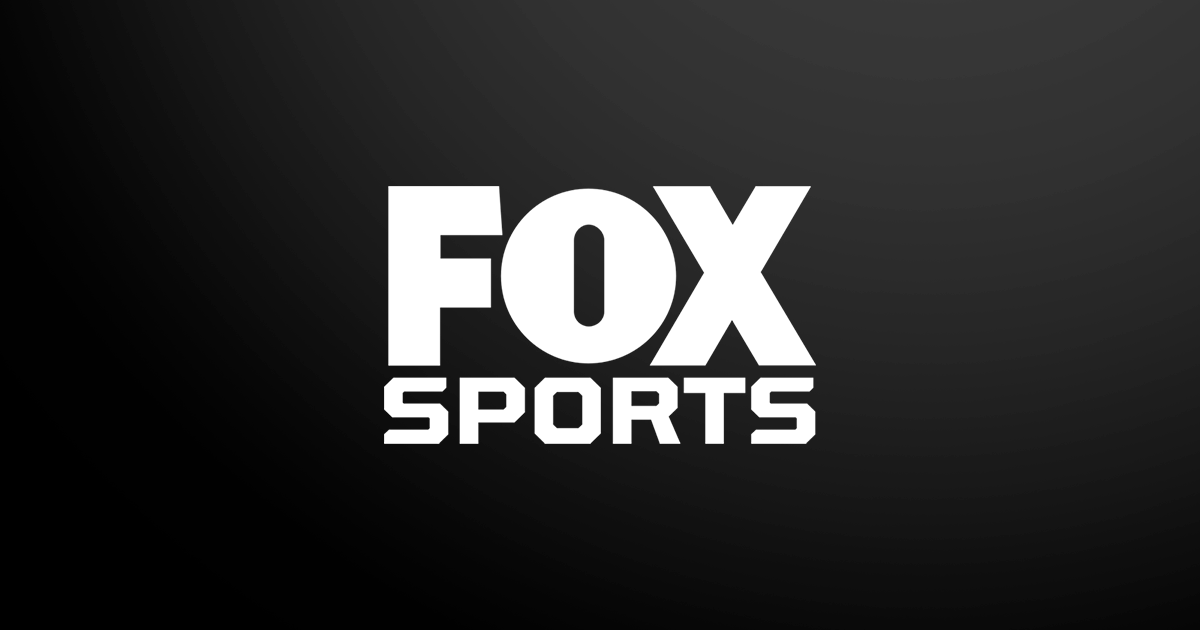
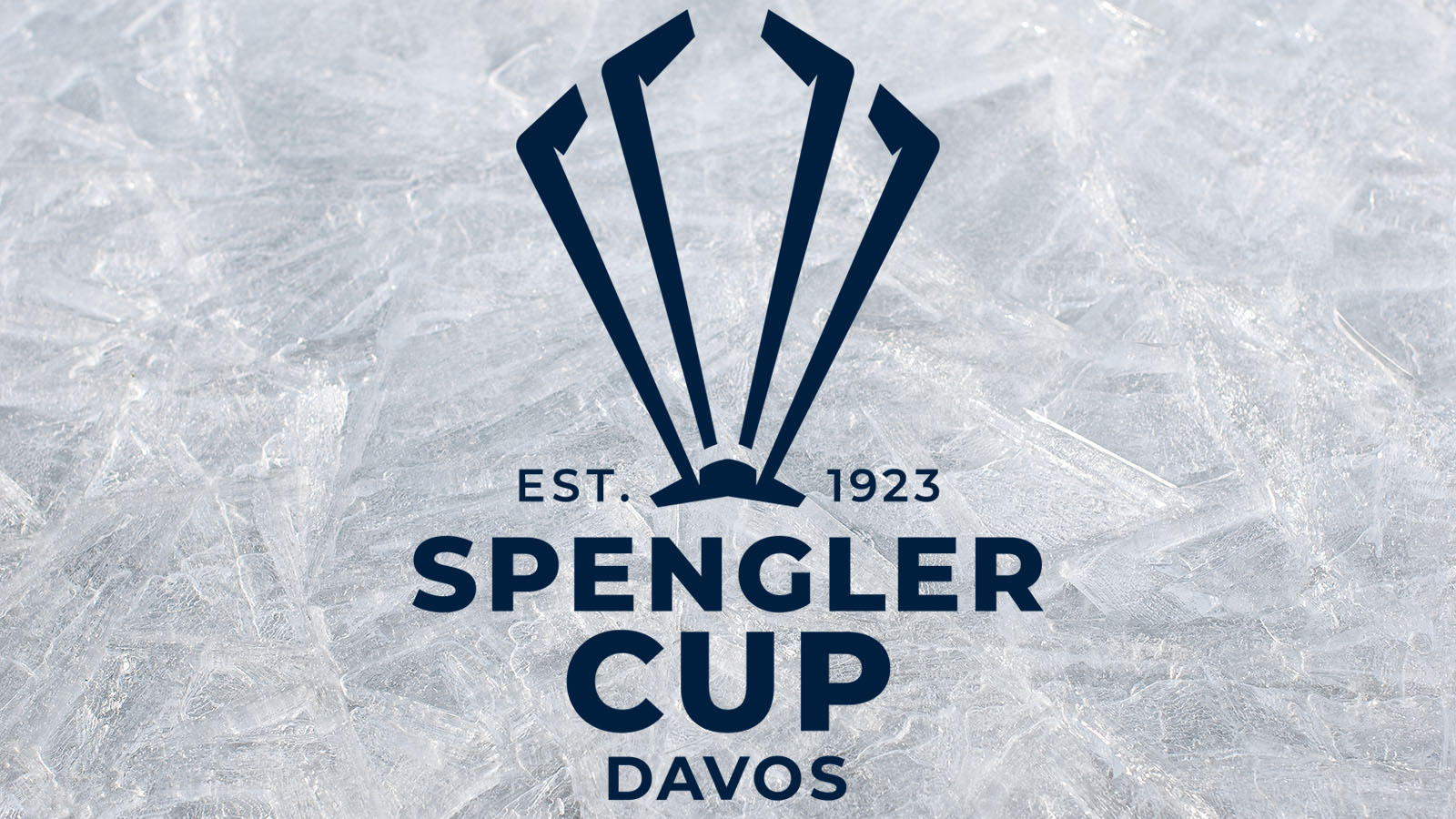

























 Stephen A. responds to LeBron’s NBA coverage criticism | First Take
Stephen A. responds to LeBron’s NBA coverage criticism | First Take






 (via @nbcsportsauthentic/TT)
(via @nbcsportsauthentic/TT)








